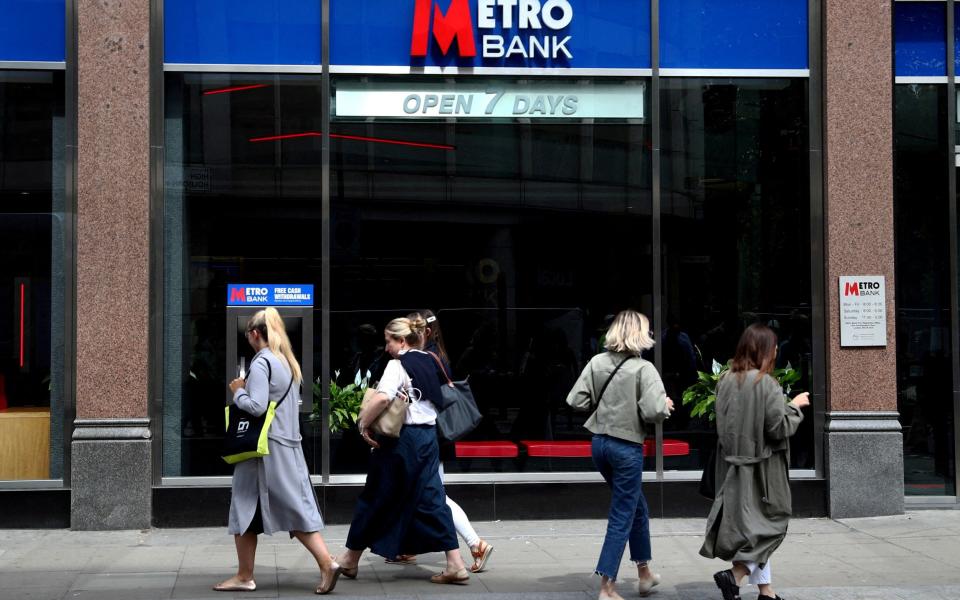Metro Bank in talks to sell £3bn mortgage book to Barclays

Metro Bank is on the cusp of selling a large chunk of its home mortgage portfolio to Barclays after shareholders waved through a £925m rescue deal.
The troubled lender has been in talks with prospective buyers about offloading about £3bn worth of homeowner loans as part of a funding package announced in October.
Lloyds, Natwest and HSBC had been touted as possible buyers but last night it emerged that Barclays had entered exclusive talks with Metro about acquiring the book, as first reported by Sky News.
The deal, which is expected to be completed before the end of the year, will bolster Metro’s balance sheet and reduce the amount of money it must put aside as a safety buffer.
The £3bn residential mortgage portfolio forms a large part of Metro’s near-£8bn mortgage book, which mostly comprises homeowners in London and the south east.
Borrowers who have taken out mortgages with Metro will be transferred to the new owner of the portfolio once the deal is completed by the end of the year.
The anticipated sale comes as a complex £925m rescue deal was approved by shareholders at a meeting in London on Monday.
Metro said shareholders had “overwhelmingly” backed the new capital package.
“This is testament to their belief and confidence in the future of Metro Bank,” the company said.
Metro’s largest shareholder, Colombian billionaire Jaime Gilinski, cemented his ownership of the bank by stumping up over £100m through his investment vehicle Spaldy Investments.

The deal gives Gilinski’s fund 53pc of Metro’s shares and effective control of the bank. His daughter, Dorita Gilinski, sits on the Metro board and was present at the meeting yesterday.
The rest of the funding comes from other shareholders and a £600m debt facility.
As for the anticipated mortgage book sale, Metro chief executive Dan Frumkin said it would help the bank move into other areas of lending.
He said: “The mortgages we have on our balance sheet are high quality but aren’t necessarily what we want on our balance sheet as we move forward, they’re probably better placed on another institution’s balance sheet.”
Metro’s mortgage book is primarily made up of owner-occupied home loans, with about one in three loans on Buy to Let mortgages.
The plan mirrors a similar deal in 2020 when Metro sold about £3bn worth of mortgages to Natwest.
Known internally as Project Eden, the deal saw Metro mortgage holders transfer over to Natwest once the deal was complete.
Shares in the bank were trading at around 40p on Monday, down around two-thirds from the start of the year.
Once a darling of the challenger bank movement under the former chairman Vernon Hill, Metro was laid low by an accounting error that prompted deposit holders to flee in 2019.
Metro has 4,000 staff across 76 branches in the UK.
The bank had been examining options for its mortgage book and balance sheet ever since the Prudential Regulatory Authority (PRA) delayed permission to use its own internal models to calculate their risks.
Larger banks are often allowed to use their own internal models, which lead to lower charges for the types of loans that banks hold.
Metro was forced to rely on more onerous PRA models, which added further pressure to its balance sheet.
Metro and Barclays declined to comment.

 Yahoo Finance
Yahoo Finance 